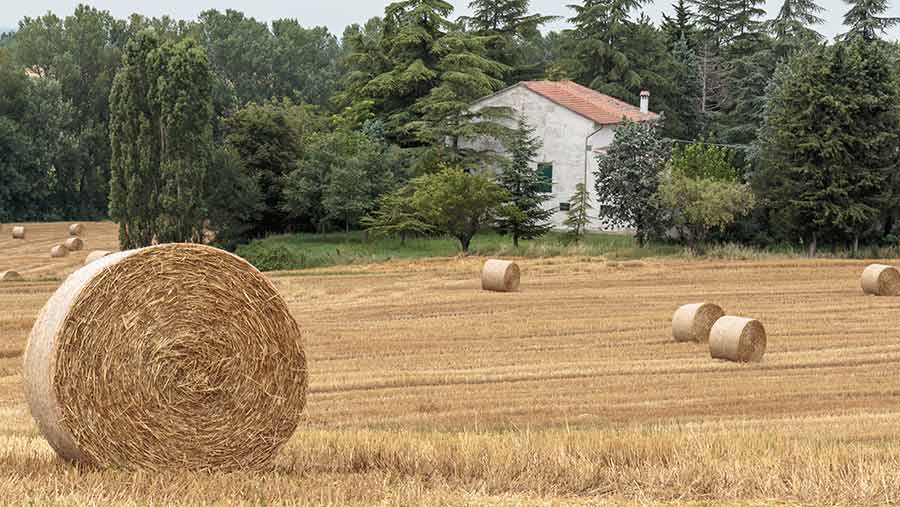Business Clinic: Will I have to pay CGT on sale of shared house?
 Library picture © ING image
Library picture © ING image Whether you have a legal, tax, insurance, management or land issue, Farmers Weekly’s Business Clinic experts can help.
Here, Mark Chatterton of accountant Duncan & Toplis advises on how siblings will be charged Capital Gains Tax on a shared farmhouse in which not all of them live.
Q I have farmed our family farm all my working life, initially along with my father and then, for the last 30 years since his retirement, on my own. Since that time I’ve also occupied the farmhouse.
When our father died in 2008 I inherited the farm jointly with my brother and sister and we own it as “tenants in common”.
My siblings have no involvement in or income from the farm, on the understanding that when I retire in a couple of years’ time we will sell the property and divide the income equally between us.
My query is simply when we do sell, will I qualify for 100% tax relief, as I am effectively selling the house I own, and have occupied for the last 30 years, or should we rearrange the ownership so that I own only the house and my brother and sister only own the buildings and land. We would still split all the proceeds equally between us.
See also: Business Clinic – what VAT applies to holiday let conversion?
A The first point to mention is that you, your brother, and your sister are all taxed independently from each other, despite jointly owning the farm. Your individual personal circumstances will impact upon your tax position.
 Mark Chatterton
Mark Chatterton
Director, Duncan & Toplis
The disposal of the farm as a whole will be liable to capital gains tax, and certain reliefs could apply.
As a reminder, capital gains tax is charged on the profit arising on the difference between the net sale proceeds, and the acquisition cost. In your circumstances, the acquisition cost will be the probate value when your father died in 2008.
The farmhouse will be taxed separately to the land and buildings, and as you have lived in the property, you will not be required to pay capital gains tax on the disposal. This is because the farmhouse has been your Principal Private Residence (PPR) throughout the period of ownership.
Your siblings will be taxed fully on the gain, as they have not lived in the property while they were joint owners. As farmhouses are residential property, the rates of tax will be 18%, while the gain falls within the basic income tax band, or 28% on any amount above this.
The farmland and any farm buildings are not treated as residential properties, and therefore are taxed at lower rates of capital gains tax. These are 10%, while the gain falls within the basic income tax band, or 20% on any amount above this.
As you have personally farmed the land, assuming the farm is sold in its entirety, Entrepreneurs’ Relief (ER), may be claimed, making the tax rate 10% up to £10m of gains.
Your siblings, having not been involved with the farming operations within the 12 months prior to disposal, will not be able to claim ER, thus the majority of their gain is taxable at 20%.
It is important for clients to sort out property and business ownership at an early stage to maximise potential reliefs.
Ideally an individual should own 100% of the house they live in to secure full Principal Private Residence relief, so preferably you would have owned all of the farmhouse rather than just a one-third share.
Unfortunately this is difficult to achieve now since any transfer to you by your siblings would incur a charge to capital gains tax as if the property were sold at market value.
This would accelerate their share of capital gains tax, and only protect any growth between now and the date of sale from the charge to tax. Therefore this may well not be tax efficient unless their gains could be covered by their annual exemptions.
Additionally, have you considered bringing your siblings into partnership for at least a year before a sale to maximise the availability of Entrepreneurs’ Relief? Depending on the sums involved, this could near enough halve their share of the tax bill.
Do you have a question for the panel?
 Outline your legal, tax, finance, insurance or farm management question in no more than 350 words and Farmers Weekly will put it to a member of the panel. Please give as much information as possible.
Outline your legal, tax, finance, insurance or farm management question in no more than 350 words and Farmers Weekly will put it to a member of the panel. Please give as much information as possible.
Send your enquiry to Business Clinic, Farmers Weekly, RBI, Quadrant House, The Quadrant, Sutton, Surrey SM2 5AS.
You can also email your question to fwbusinessclinic@rbi.co.uk.
